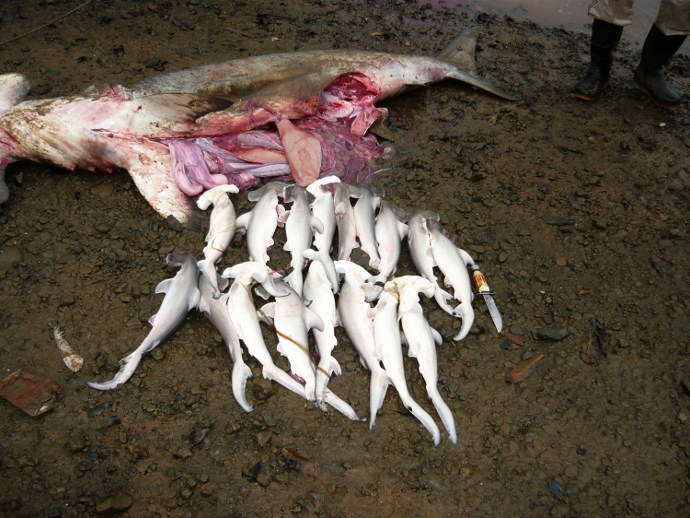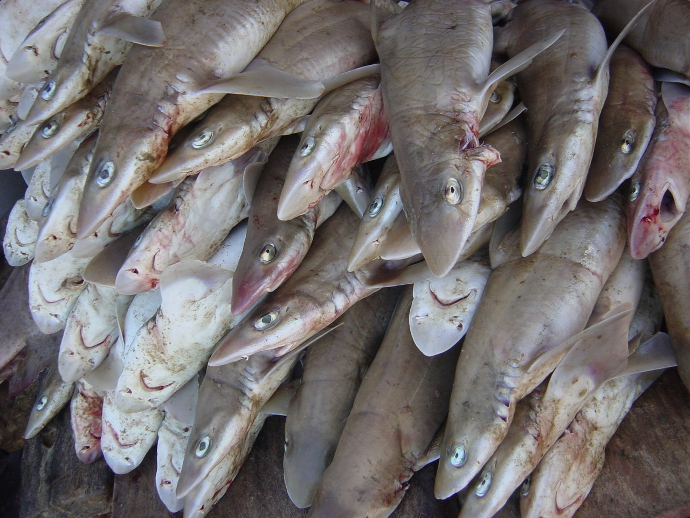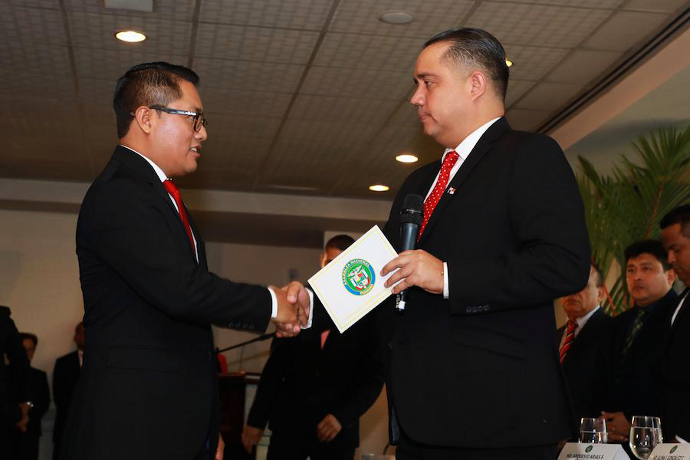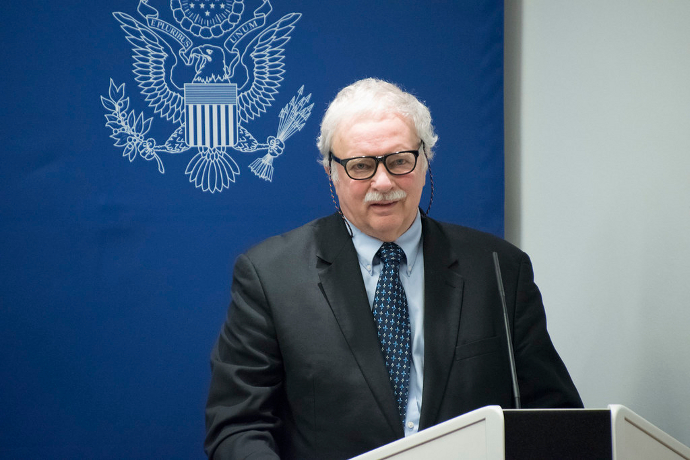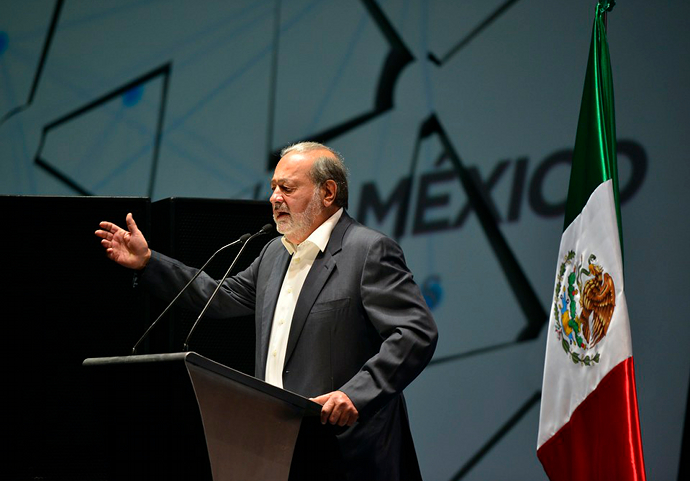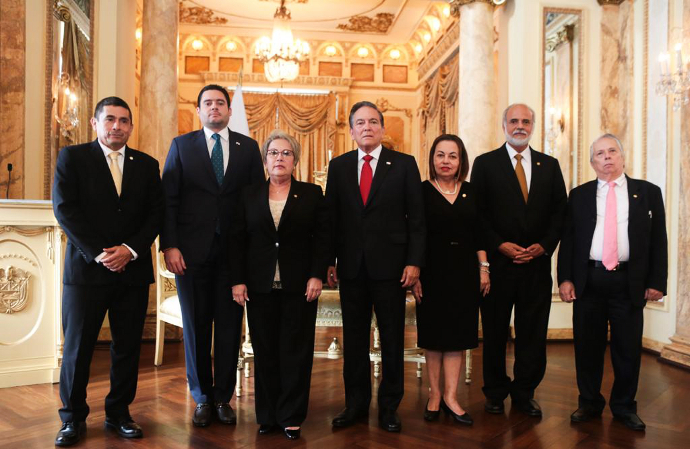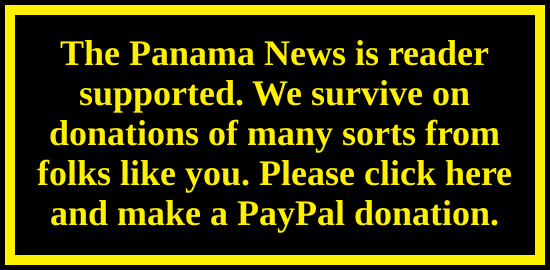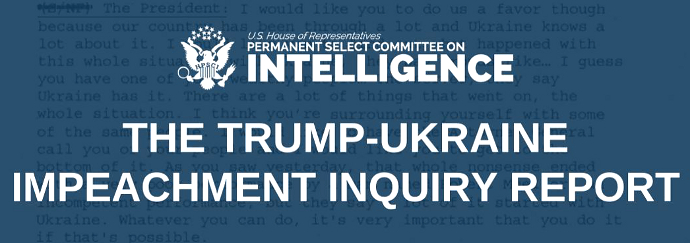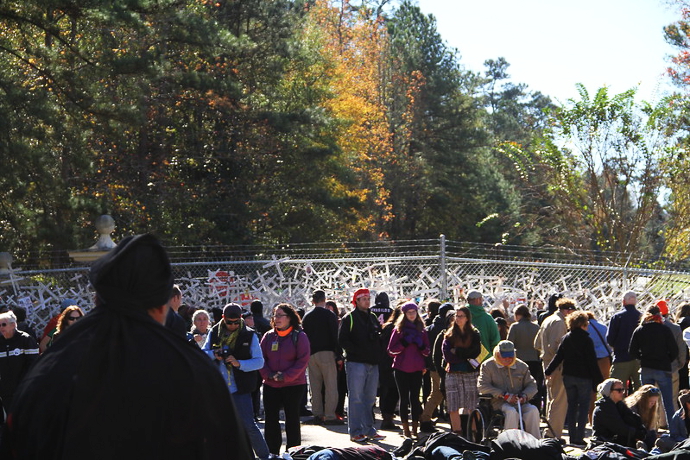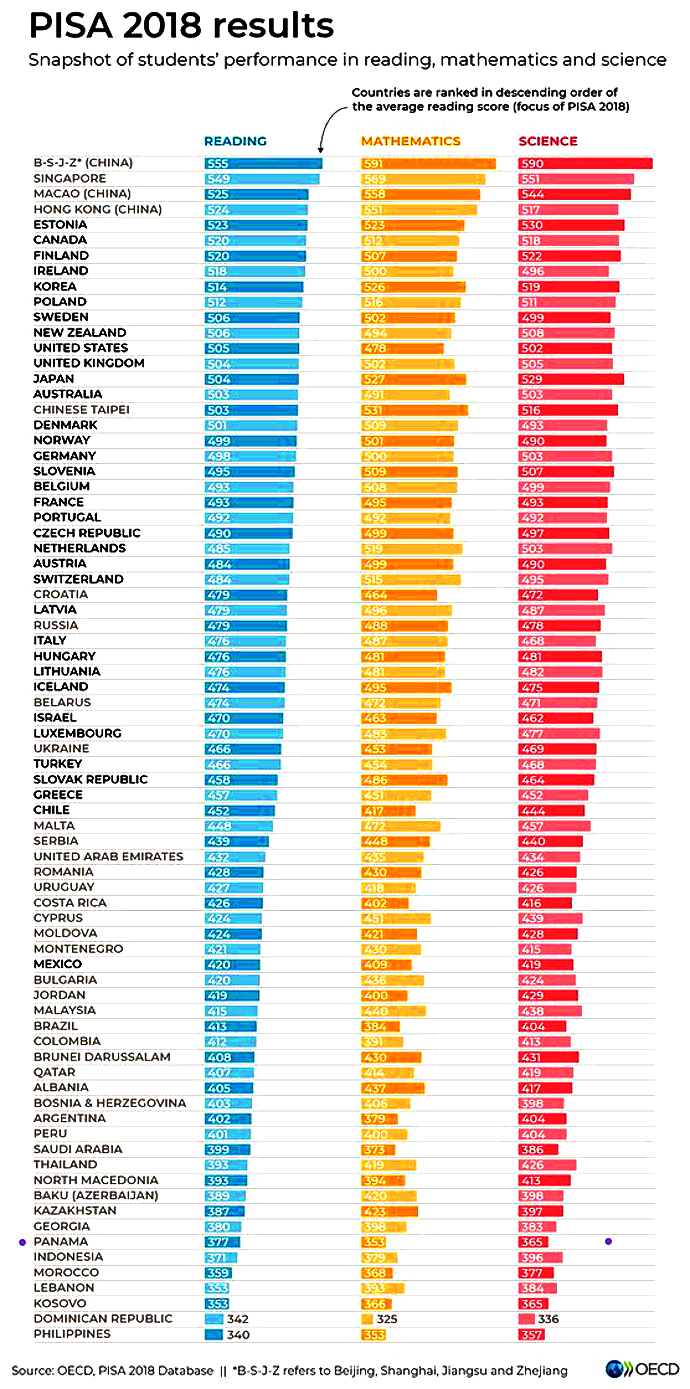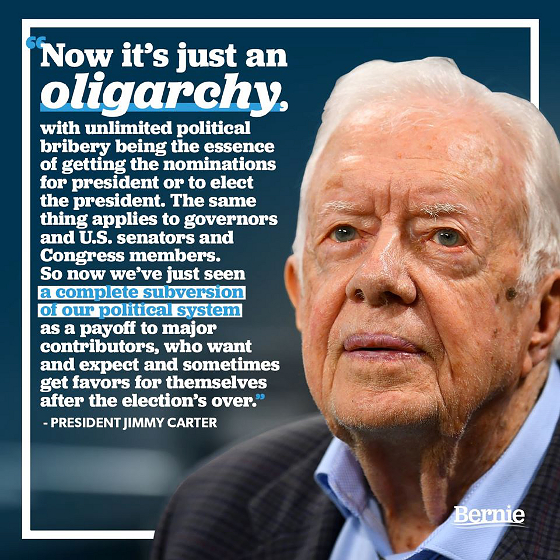Stanley R. Sloan. US Embassy Vienna photo from 2017.
Celebrating
NATO’s 70th Anniversary
by
Stanley R. Sloan
[Editor’s note: This is the draft of a keynote speech prepared for an event organized by the Danish Atlantic Council but canceled after the Trump administration’s insistence that Professor Sloan not be allowed to speak. Sloan then published this on his Facebook page. It’s published here not because the editor wholeheartedly agrees with Dr. Sloan, but because it’s a well reasoned argument for a point of view that commands a lot of respect and spport in the world and because in our region, and with the Organization of American States and various military alliances, we face many kindred challenges. Panama also has a past to consider here. Historically, commanders of the US Southern Command, once based in Panama, would often be promoted to head NATO forces. Going farther back to before NATO and SouthCom, to before the formal US entry into World War II, much US assistance to the United Kingdom during the German blitz came by way of food and war materials shipped through the Panama Canal from the US West Coast and that attracted German u-boats to the Caribbean, which in turn attracted allied military and political responses, one of the latter being US sponsorship of the 1941 coup d’etat that ousted Hitler’s friend Arnulfo Arias from the Panamanian presidency. As a little country on a major world trade route, we are well advised to look at the world around us.]
Over
the course of this year of celebrating NATO’s 70th anniversary,
I’ve reflected on the somewhat scary fact that I’ve been working
on European security issues for 50 of those 70 years. And I don’t
plan to stop anytime soon.
Today,
I’ll discuss the internal and external challenges facing the
alliance and the West more broadly, including a few historical
reflections.
I
then will suggest three possible futures for the alliance and its key
institutions.
First,
I want to make it clear where I’m coming from.
- I
support liberal democracy as the best, albeit not perfect, political
system for our countries.
- My
outlook on how to defend the West is influenced as much by this
ideological bias as it is by the need for governments to defend
against physical threats.
- Finally,
in my years of working on transatlantic relations I’ve analyzed
and written about many “crises.”
- It’s
my judgment that the crisis currently facing the West is the most
dangerous of any seen in the past seven decades.
Some
earlier crises appeared, at the time, to threaten the future of the
transatlantic bargain struck between the United States and its
European allies in 1949.
And
yet, every time the clock has struck midnight at the end of each
crisis, Western democracies have decided that cooperation in a
transatlantic framework remained in their best interests.
No
ally has left NATO.
Until
Brexit, no member state has decided to leave the European Union.
Of
course, “the West” is more than the transatlantic alliance.
When
the term is defined broadly, it certainly includes Eastern
democracies such as Japan, South Korea, Australia and New Zealand.
Ultimately,
however, the members of NATO and the European Union represent the
heart of what we call “the West.’
The
well-being of the transatlantic relationship is the critical key to
the survival of the West.
Not
all members of this core group have always met the high standards set
in the North Atlantic Treaty, or by the guiding principles of the
European Union.
But
Western nations aspire to and judge themselves against the goal of
governing with systems that honor individual liberty, electoral
democracy, human rights and the rule of law.
Principled
American leadership for 70 years has been the main sustenance for the
transatlantic relationship.
The
current crisis did not start with Donald Trump, even though he
certainly has brought it to a head.
From
an historical point of view, the crisis has its roots in NATO’s
formative years.
The
distribution of costs and benefits of the alliance has always been an
issue.
Commentators
and even politicians sometimes forget that popular support for
leaders of democratic states depends on the leaders’ ability to
deliver the necessary level of security at a price deemed reasonable
by the voters.
Each
member of the alliance therefore tries to ensure the level of
security desired by its citizens at the lowest possible cost.
The
value placed on defense, and willingness to devote scarce resources
to it, varies between countries, depending on contemporary threat
perceptions, economic conditions, and other factors.
Consequently,
the transatlantic alliance will be perpetually plagued by a “burden
sharing” problem.
That
reality will require constant negotiations and adjustments of the
burdens to find a balance of costs and benefits acceptable to all
nations that benefit from the system.
But,
as President Macron argued to President Trump in London, the alliance
is not just about defense spending.
Both
presidents, perhaps, should be reminded that Russia remains a threat,
not just a military one but also one that is targeting our
democracies.
Today,
the transatlantic alliance is in crisis not just because of burden
sharing, but perhaps more importantly because the value foundation of
the alliance is under attack and has been eroding.
Democracies
can be slow to adapt to changing realities and to reform themselves.
If
a political system – like the democratic ones of the United States
and its European allies – is built on a solid constitutional
foundation, major changes need to be considered seriously and tested
before public opinion.
That
said, democracies that do not deal effectively with the concerns of
the populace are vulnerable to pressure from fear-based populist
appeals.
Such
pressures have troubled most of the transatlantic democracies in
recent years.
Those
pressures have been aided and abetted by politicians seeking to build
their power through playing on popular fears and making promises of
strong leadership to respond to those fears.
At
the same time, states with undemocratic political systems are
increasingly taking advantage of the openness of liberal democracies
to undermine the democratic systems that they see as threats to their
more centralized and controlling regimes.
If
I were a European who believes in Western values, I’d be worried –
very worried, at least as worried as this American is.
Meanwhile,
the American guarantee of European security has, under President
Trump, become very uncertain.
Mutual
trust among leaders of alliance nations is at an all-time low.
The
London meeting did little to reassure us.
And,
the threat from Russia has become even more intrusive.
Russia’s
Putin is getting a helping hand from our president as well as from
radical right populist politicians here in Europe.
At
this point, let me reflect on something from NATO’s history.
In
December 1953, President Eisenhower’s Secretary of State, John
Foster Dulles, threatened his fellow foreign ministers at a NATO
meeting in Paris with an “agonizing reappraisal” of the US
commitment to European defense.
Dulles
brought to Paris the austerity concerns of the Eisenhower
administration.
He
insisted that the Europeans follow through on their pledge to improve
their contributions to transatlantic defense by establishing a
European Defense Community (EDC).
This
was the first and, until the election of Donald Trump, the last time
that an American government threatened to abandon its NATO
commitments.
The
question now is whether the Trump threat will fundamentally alter
transatlantic relationships.
How
seriously has trust in US leadership been damaged?
Will
future US administrations be able to regain that trust?
Do
Europeans still want or need an American partner?
If
so, what might they do to ensure continued American contributions to
their security?
That’s
my summary view of internal threats to the alliance.
Now,
I’ll say a few words about the external threats.
In
the year of NATO’s 70th anniversary, we find ourselves in a unique
threat environment.
Russia,
led by former KGB officer Vladimir Putin, for several years now has
actively sought to undermine Western unity while pursuing its own
geo-strategic goals.
Putin
blames the West for the new confrontation, arguing that the
enlargement of both NATO and the European Union threatens Russian
security.
Some
in the West accept this argument.
Putin,
however, clearly knows that the consensus-based nature of NATO means
it is very unlikely to decide to attack Russia.
What
Putin fears most is that the Western model of free, rules-based
societies and governments, might take popular root in Russia,
threatening his authoritarian rule.
And
Russia’s strategy is to play on existing divisions among the NATO
allies and to create new ones.
In
my judgment, President Putin believes that, if the United States
retreats from Europe, Europeans will not choose to replace American
power with comparable European power.
Putin
has constructed a convincing military threat facing the West; he’s
mixed it with energy dependence, and with clandestine as well as
overt political manipulation, all wrapped up in the comforting cocoon
of a peace campaign.
Putin
offers complacent Europeans and Americans peace and stability under
the Putin model of society and governance, to replace the Western
model based on individual liberty, democracy, human rights, tolerance
and the rule of law.
Ironically,
another external threat is also aimed at destabilizing the Western
system.
The
strategic goal of the terrorists committed to the Islamic State, and
similar groups, is to undermine faith in Western democracy.
The
Islamic State has used its aggressions in the Middle East and North
Africa to produce a flow of refugees to Europe seeking safety and a
better future.
This,
along with terrorist attacks on Western targets, destabilizes the
West and disrupts European and transatlantic unity, thus advancing
the Islamic State’s objectives.
Now,
another new element has come into the frame.
For
many years, the United States has focused on the growing challenges
posed by a Chinese regime whose growing economic and financial
strength are managed in a political system that is the antithesis of
the system that defines the West.
It
is the system whose imposition the pro-democracy demonstrators in
Hong Kong have been protesting.
Today,
President Xi Jinping’s Belt and Road Initiative has become a potent
vehicle for spreading Chinese power and influence around the globe,
including in Denmark’s Arctic backyard.
Perhaps
for the first time in recent history, Europeans are looking at China
as something more than a trading partner, and increasingly as an
expansionist power, relying, at least for now, primarily on its
financial and economic strength for its conquests.
The
combination of external and internal threats that I have just
discussed will not likely disappear any time soon.
They
will present continuing challenges to the survival of both liberal
democracy and the transatlantic alliance.
Most
NATO and EU member states will likely want to protect themselves
against such threats.
But
whether and how they will do so remains an open question.
Future
Scenarios
Against
this backdrop, I suggest that there are three broad possibilities for
the future of the transatlantic alliance.
I’ve
constructed them simply to stimulate thought, not to predict or
advocate.
My
basic assumption is that a healthy, functioning transatlantic
relationship is “a good thing.”
All
three of my scenarios assume that:
- Russia
continues to pose political and military challenges while its
economy weakens.
- The
threat of terrorist attacks will persist;
- There
will be growing concern about Chinese power mixed with opportunistic
cooperative deals; and
- I
don’t like it, but I also assume that the UK will leave the EU.
That
said, I have not very creatively called my three broad scenarios:
- Substantial
continuity
- Radical
positive change
- Radical
negative change
First,
substantial continuity
In
this potential future, very little changes the trend lines that have
been laid down by history.
The
United States remains committed to participate in the defense of
Europe, to deploy substantial numbers of troops in Europe, and to
retain military leadership of NATO with a senior American general
serving as NATO’s Supreme Allied Commander.
In
this scenario, post-Trump administrations try to repair damage done
to US leadership of the alliance, without abandoning US burden
sharing concerns.
All
current allies remain in the alliance, despite some wavering (Turkey)
and others experimenting with forms of democracy that do not conform
to liberal democratic values (you can fill in that blank).
With
the United Kingdom having abandoned its EU membership, the EU
continues, with some modest successes, its attempts to give the Union
a more substantial integrated military capacity.
The
UK makes some cooperative military arrangements with its former EU
partners while seeking a continued “special relationship,”
including intelligence sharing, with the United States.
In
this potential future, several allies spend around 2 percent of GDP
on defense by 2024 as was agreed at the 2014 Wales summit, while
others fall short.
Second
scenario, radical positive change
In
this future, the goal of a more balanced transatlantic relationship
comes more clearly into view.
The
United States remains committed to the alliance while supporting
European efforts to take on more burdens and responsibilities in the
alliance.
The
members of the EU make substantial advances in coordinating and even
selectively integrating their defense establishments.
A
true European army controlled by a politically united Europe remains
out of reach.
But
all EU members increasingly sacrifice bits of their national control
in a variety of pragmatic cooperative arrangements.
The
UK, despite its departure from the EU, commits to thorough defense
cooperation with EU members, while remaining fully committed to NATO.
Increased
European defense spending is accompanied by the revitalization of a
European defense industry, with multinational firms and co-production
arrangements setting up a healthy competition across the Atlantic.
At
the same time, the US-European competition for sales is moderated by
better transatlantic defense industrial cooperation.
The
stronger European contribution to defense is acknowledged with
alternating European and American Supreme Allied Commanders of NATO
as a transition to a possible future in which Europeans routinely
hold this post.
The
role of Secretary General also alternates between prominent European
and North American political leaders.
Finally,
radical negative change
This
scenario presents a much darker future.
In
it, the United States essentially abandons its transatlantic
commitments and leadership roles.
The
European allies fall into disputes about how to maintain their
security and provide new leadership.
Such
a scenario could begin with the reelection of Donald Trump.
In
this hypothetical scenario, Trump continues the process of abandoning
US international leadership and decides to remove all US forces from
Europe.
Trump
tweets that he and Vladimir Putin have agreed that such a move would
promote peace and security in Europe.
In
response, European allies discuss creating strong, integrated
European defense structures to replace the transatlantic NATO one.
But
they find it too challenging politically and financially.
Even
the overwhelming cost estimate projected in 2019 by the IISS for the
EU members to create a defense system as capable as that of NATO
turns out to be overly optimistic.
Several
member countries suggest that the EU should follow the US lead and
sign a peaceful relations accord with Russia, in which both sides
pledge to take no aggressive actions against the other.
Even
though some commentators immediately label this “the 21st century
Munich,” most European governments decide they have little choice.
In
addition, this move toward accommodation with Russia strengthens
illiberal pro-Moscow parties throughout Europe.
That
leads to the election of several national administrations that lean
toward fascist forms of governance and away from liberal democracy.
As
I have said, I do not predict any of these outcomes, but present them
to help us consider where to go from here.
So,
my next question is what can history tell us about the future?
In
theory, we pay attention to history in the hope that it will help
guide us to the future.
We
all remember George Santayana’s words: “Those who cannot
remember the past are condemned to repeat it.”
We
do need to learn from history, even if it doesn’t predictably
repeat itself.
In
the case of transatlantic relations, two global conflicts in the last
century led democratic leaders at the end of WWII to agree on some
major international steps to try to avoid another repeat.
This
set of creative decisions produced successful systems of political,
security and economic cooperation among the transatlantic democracies
for over seven decades.
With
all its imperfections, this system, with its twin institutional
pillars of NATO and the EU, makes its own case for preservation.
Those
who argue for major changes in this arrangement must bear the burden
of proving that they have a better idea.
So,
will history return to somewhat more reliable and familiar patterns,
as suggested in the continuity model?
Alternatively,
will the allies figure out how to improve the system while preserving
its core objectives?
Or
will the forces of disruption steer the transatlantic democracies in
very different and potentially dangerous directions?
The
West is still composed, by definition, of democracies, and thus the
people and governments of the member nations, will determine its
direction.
The
ability of the people to decide their future is a fundamental and
treasured quality shared by Western democratic governments.
However,
there is still the risk that electorates could make choices that will
not serve their, or their descendants’, interests well.
The
current collision between history and disruptive forces of change
poses a huge challenge to the United States, Canada and the European
democracies.
We
could relax and follow Donald Trump’s observation that “we will
see what happens.”
On
the other hand, I prefer that those of us who believe in liberal
democracy and the transatlantic alliance take the steps necessary to
ensure their future.
Dr. Sloan appended this explanation to his Facebook post:
The Danish Atlantic Council has just let me know that, due to my criticisms of President Trump, the American Embassy in Copenhagen under Ambassador Carla Sands has vetoed my participation in the scheduled 10 December celebration of NATO’s 70th anniversary. The letter from the council reads, in part, “the Danish Atlantic Council sees no other alternative than to inform you that the Embassy of the United States has decided that your presence at the Conference is not possible, wherefore we with sincere and profound regrets have to inform you that we are not in position where we cannot comply with the instructions given by the Embassy of the United States.”
Stanley
R. Sloan is the founding Director of the Atlantic Community
Initiative, visiting scholar in political science at Middlebury
College, and President of VIC-Vermont, a private consulting firm.
He’s a foreign relations expert who served in various
intelligence, liaison/negotiating and policy making roles with the US
Air Force and the CIA. He was educated at the University of
Maine, Columbia University’s School of International Affairs, and
American University’s School of International Service and the Air
Force Officers’ Training School. To see some of his writings, go to
http://www.AtlanticCommunity.org
Contact us by email at fund4thepanamanews@gmail.com
These links are interactive — click on the boxes





